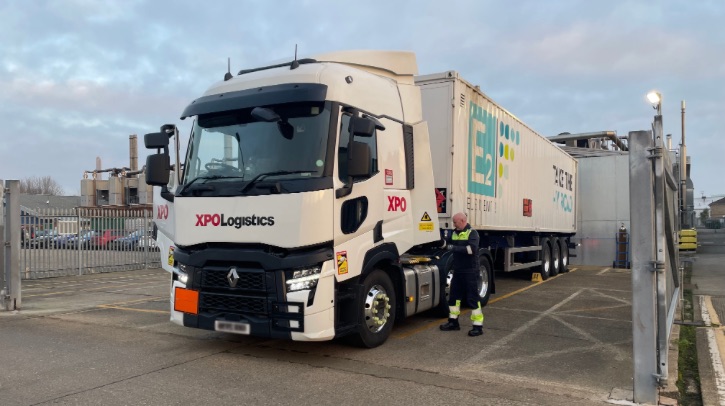Mahle Powertrain has entered the testing phase of a project that will promote the use of hydrogen fuel in existing heavy-duty truck engines. Dubbed Project Cavendish, it is a £9.8m (US$12.2m) government-funded program facilitated by the Advanced Propulsion Centre UK (APC).
The project will deliver solutions and a clear upgrade path to enable hydrogen combustion using current platforms and infrastructure. It involves Mahle Powertrain’s flexible testing facility in Northampton, combined with the company’s experience with alternative fuels such as hydrogen and methanol.
“Hydrogen combustion engines (H2 ICE) are well suited to heavy-duty, long-distance applications that are hard to electrify,” said Jonathan Hall, Mahle Powertrain’s head of research and advanced engineering. “Its use allows industry to take advantage of years of development and investment as a means to accelerate the transition toward net zero.”
The EU’s recently revised CO2 standards for heavy-duty vehicles require a 45% reduction in CO2 emissions by 2030, rising to 65% by 2035 and 90% by 2040. In response to this legislation, the UK government has committed £8.3bn (US$10.3bn) for Great British Energy – a new, publicly owned, clean-energy company – to invest in the hydrogen industry and up to £21.7bn (US$27bn) for large-scale infrastructure projects.
Project Cavendish draws on the experience of several partners including Phinia, BorgWarner, Cambustion, Hartridge and Mahle Powertrain to develop novel fuel-injection systems and supporting turbocharging parts that can be ready for high-volume production in time to meet legislation.
Mahle’s recently expanded Northampton facility has the capacity to hold two tube trailers on-site, with rapid switch-over between them to ensure a near-continuous supply of hydrogen. Upgraded engine dynamometers with a 900kW/4,000Nm nominal capacity can support key heavy-duty demands, while in-house-designed control systems and software ensure safety.


